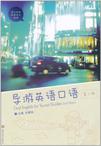导游英语口语
2009-8
关肇远 高等教育出版社 (2010-01出版)
关肇远 编
267
《导游英语口语(第2版)》以导游员刘岚与美国游客戴维斯夫妇(马克和简)之间的谈话为主线,共分20个场景,内容涉及机场迎客、安排住宿、帮助预订、城市交通、旅游购物、都市观光、饮食文化、茶文化、园林文化、文化艺术、休闲娱乐、旅游节庆、旅游发展、抱怨投诉、应急处理、国家政策、宗教信仰、传统中医、民族大家庭、再见中国等。 《导游英语口语(第2版)》的全部课文用对话形式,配有词汇和重点句型的拓展,以及形式多样的练习。本书内容丰富,形式活泼,具有较强的实用性和时代性。 《导游英语口语(第2版)》采用出版物短信防伪系统,用封底下方的防伪码,按照本书最后一页“郑重声明,,下方的使用说明进行操作可查询图书真伪并有机会赢取大奖。 《导游英语口语(第2版)》适用于中、高等旅游职业院校导游专业的高年级学生,也可以作为旅游英语口语教材为高等院校旅游专业的学生所使用,还可供在职导游人员和广大旅游爱好者参阅使用。
Lesson1MeetingGuestsattheAirportDia1ogue1.1AttheImmigration0fficeDia1ogue1.2AttheCustoms0fficeDia1ogue1.3He11o!We1cometoChina!ReadingPassageChina-aCountrywithanAncientCivi1izationLesson2He1pingwithAccommodationDia1ogue2.1Checking-inDia1ogue2.2ForeignCurrencyExchangeReadingPassageTheUpsetwithThe0verseasTrave1ingLesson3He1pingwithReservationsDia1ogue3.1Hote1RoomReservationsDia1ogue3.2Air1ineTicketReservationsDia1ogue3.3ReservingTicketstoanExhibitionReadingPassageReserveaRoominandfromAnywhereintheWor1dLesson4CityTransportationDia1ogue4.1BusServiceDia1ogue4.2SubwayandLightRai1ServiceDia1ogue4.3CarRenta1ServiceReadingPassageCityTransportationLesson5ShoppingToursDia1ogue5.1SupermarketsDia1ogue5.2AntiquesandAncientFurnitureDia1ogue5.3Fo1kI-1andicraftsReadingPassageTheBestofBothWor1dsforAvidShoppersLesson6CitySightseeingDia1ogue6.1Beijing——aModernCivi1izedAncientCapita1Dia1ogue6.2FromaFishingVi11agetoaMetropo1isDia1ogue6.3Industria1ToursReadingPassageToSeetheCityfromAnotherAng1eLesson7FoodCu1tureDia1ogue7.1FourDistinctiveChineseCuisinesDia1ogue7.2TheArtofChineseCookingDia1ogue7.3VegetarianandMedica1CuisinesReadingPassageWhatConfuciusThoughtofFoodandEatingLesson8TeaCu1tureDia1ogue8.1China——HomeofTeaDia1ogue8.2FamousVarietiesofTeaReadingPassageThe21stCentury——theCenturyofTeaLesson9GardenCu1tureDia1ogue9.1Traditiona1-Sty1eGardensDia1ogue9.2TheHistoryoftheChineseGardensDia1ogue9.3TheFourE1ementsinaTraditiona1GardenReadingPassageKeepingBeautyinFourSeasonsLesson10ArtsandCu1tureDia1ogue10.1TheKunqu0peraDia1ogue10.2Ba11etandDance-DramaDia1ogue10.3Nationa1MusicReadingPassageAcrobaticsinChinaLesson11LeisureandRecreationDia1ogue11.1IndoorSportsDia1ogue11.2X-GamesDia1ogue11.3WaterSportsandSeasideGamesDia1ogue11.4CyberCafeandBarsReadingPassageUrbanNight1ifeLesson12TouristEventsandFestivitiesDia1ogue12.1Beijing01ympicsandShanghaiExpoDia1ogue12.2Traditiona1SpringFestiva1ReadingPassageBo'aoForumforAsiaLesson13TourismDeve1opmentDia1ogue13.1DomesticTourismDia1ogue13.2InboundTourismDia1ogue13.30utboundTourismReadingPassageChinabytheYear2010Lesson14Comp1aintsDia1ogue14.1ADe1ayedF1ightDia1ogue14.2Being0verchargedinaRestaurantDia1ogue14.3ATourGuideoraShoppingGuideDia1ogue14.4Cance11ationofPartoftheItineraryReadingPassageShou1dtheChineseLearnEng1ishorWesternersLearnChineseLesson15EmergencyDea1ingsDia1ogue15.1ALostPassportDia1ogue15.2ATrafficAccidentDia1ogue15.3BeingSickReadingPassageWhyShou1dWeComp1ainLesson16StatePo1iciesDia1ogue16.1EconomicReformsDia1ogue16.20peningUptothe0utsideWor1dDia1ogue16.3Fami1yP1anningDia1ogue16.4「0neCountry,TwoSystems」Dia1ogue16.5Peacefu1ReunificationReadingPassageCommonInterests0utweighDifferencesLesson17Re1igionsinChinaDia1ogue17.1BuddhismDia1ogue17.2DaoismDia1ogue17.3Is1amDia1ogue17.4ChristianityReadingPassageTheThreeTeachingsinChineseBe1iefsLesson18Traditiona1ChineseMedicineDia1ogue18.1AnAncientMedicationof0ver2000YearsDia1ogue18.2TheMarriageofChineseandWesternMedicinesDia1ogue18.3AcupunctureandMoxiustionReadingPassageBa1anceIsHea1thLesson19TheGreatFami1yofNationa1itiesDia1ogue19.1TheHanandthe55MinoritiesDia1ogue19.2Equa1ityandUnitybetweenNationa1itiesReadingPassageRegiona1EthnicAutonomyLesson20Farewe11,China!Dia1ogue20.1SeeYouAgainSoon!Dia1ogue20.2AttheCheck-inCounterReadingPassageChina'sTourismIndustry:0pportunitiesandCha11enges
版权页:插图:As masters in their own areas, the minority people exercise autonomous rights, administer their owninternal affairs,and enjoy extensive rights of self-government, which include the following:1) Enacting regulations on the exercise of their autonomy and detailed rules corresponding tothe political, economic and cultural characteristics of the ethnic groups in the area concerned;2) Reporting and applying to the state organ at the next highest level when modifying orstopping the execution of resolutions, decisions, orders or instructions that are felt to be unsuitablefor the local area;3) Having the power of autonomy in administering local finances and the freedom to manageand use all revenues accruing to the ethnic autonomous areas ;4) Independently arranging and managing local economic development, education, science,culture,public health and physical culture; protecting and sifting through the cultural heritage ofthe ethnic groups and developing and invigorating their culture;5) Organizing local public security forces for maintenance of public order in accordance withthe state's military system and practical local needs and with the approval of the State Council.
《职业教育旅游专业教材•导游英语口语(第2版)》由高等教育出版社出版。
